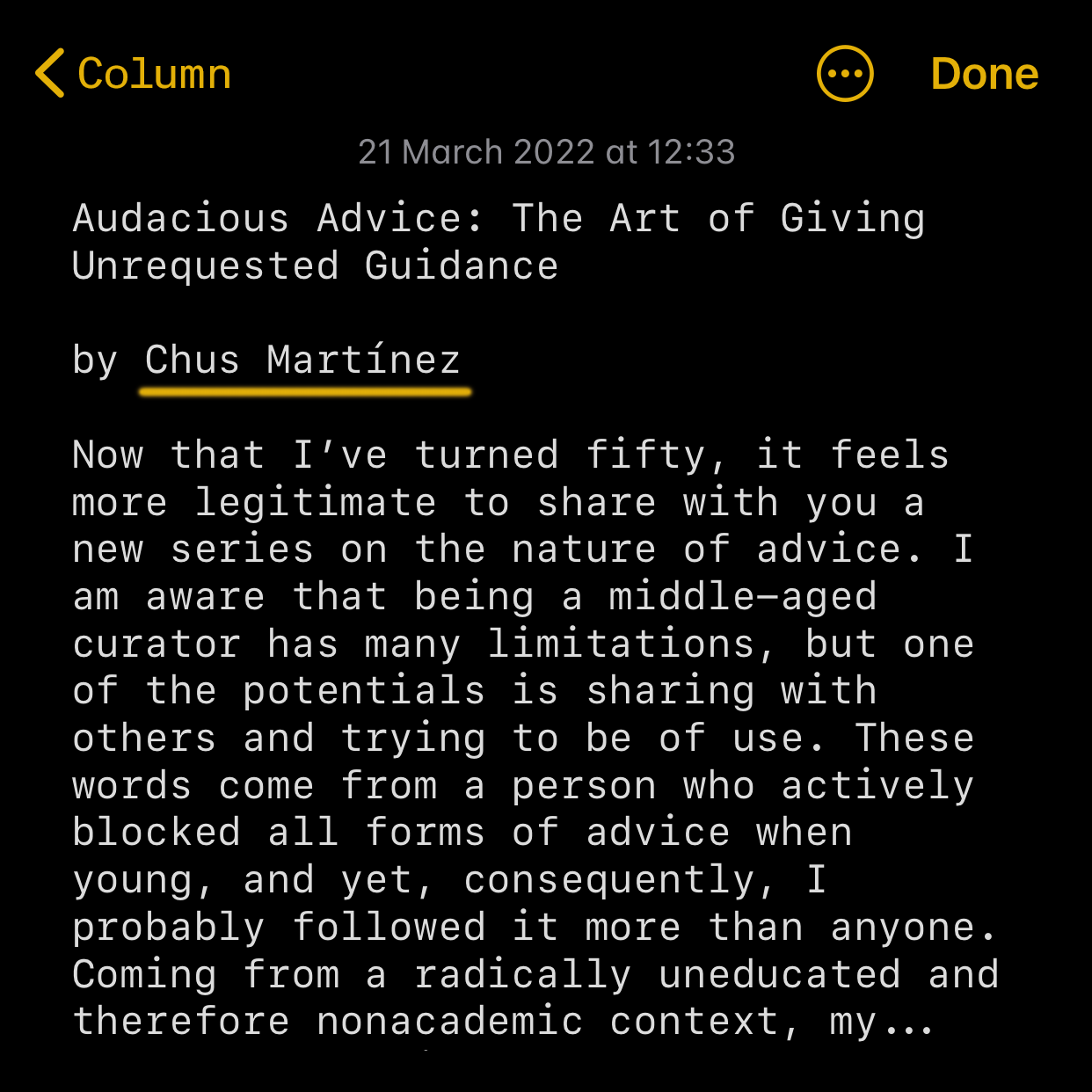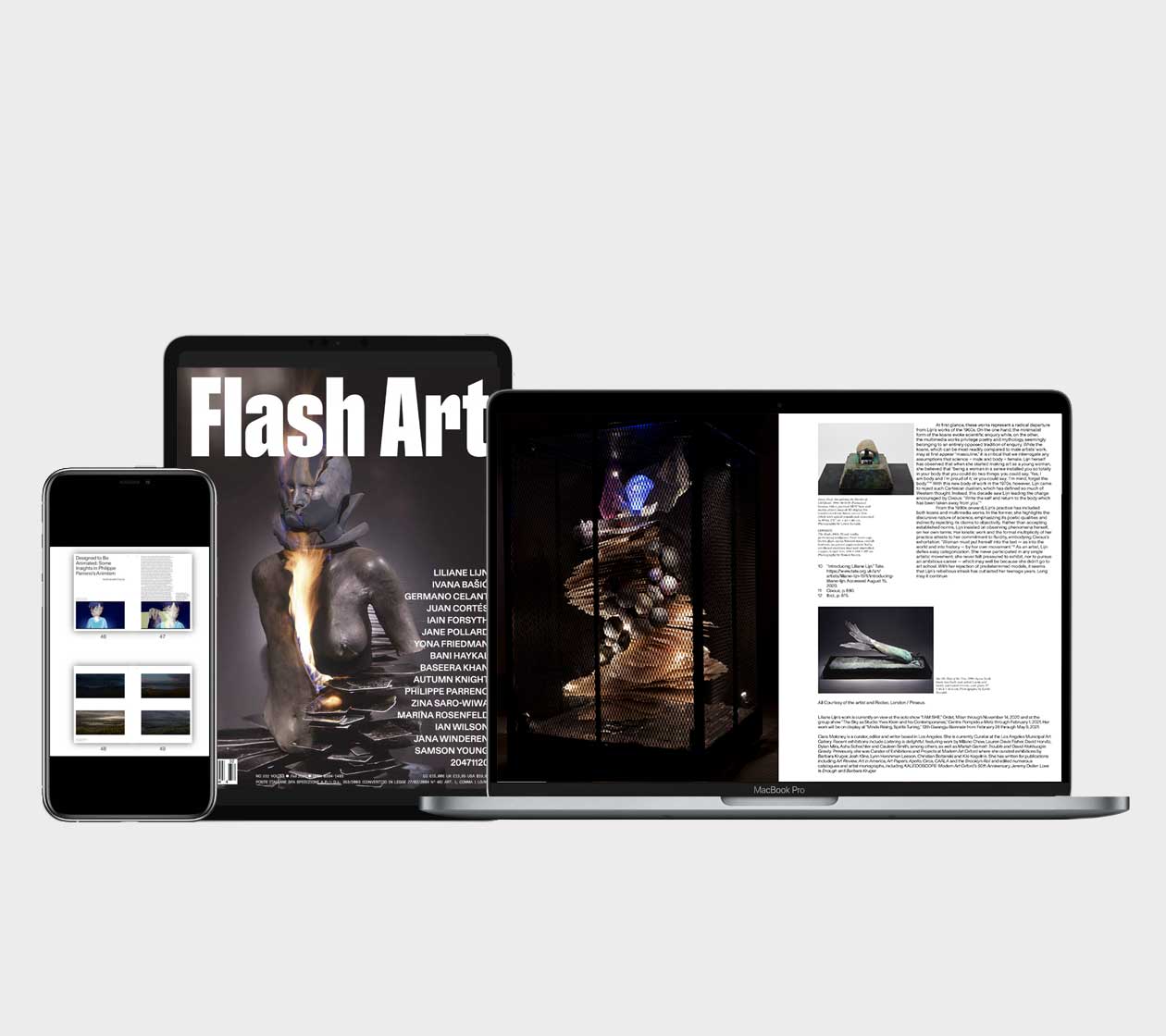A Monthly Column on The Art of Giving Unrequested Guidance.
When I was in my twenties, my “woman’s doctor” retired and I was assigned to a recently graduated doctor only a few years older than me. Seeing him, my surprise was evident, so he said, “Sit down and tell me your fears, instead of looking at me as if I cannot fix them!” I told him that my biggest fear was not to be able to work in a field I am passionate about. “Take your clothes off. I totally understand you. I always wanted to be a gynecologist — I had no other dream.” We saw each other a lot, since I am a complete and total hypochondriac, and he assuaged my fears and enabled me to regain my senses after a short checkup. Once, I came to his office for one of my micro-checkups and he noticed I was infuriated. “What’s the matter?” “The matter? I asked a male friend for a few restaurant recommendations for a friend, and he blandly replied, ‘I don’t go out much these days.’ Just avoiding helping! I sent the same message to a female friend living in the same city and I got an extensive list!” While examining my body he said, “Well, as a man, I would have given you the same evasive answer. Of course, if you were to ask me as a doctor, I would help you.” I did not know what he was talking about. You open your mail, or today, your chat apps, and a very close friend asks you for a micro-favor and you don’t even try to help, to please me, not even a single bit? I’ve encountered this situation so many times, enough to really be able to state that, yes, there is a gender gap in relationship to certain issues, like helping a friend and sharing certain information. I am saying this not to criticize those who do not share, but to analyze how some people are educated toward helping and others toward being professional — as my doctor noted.
I soon understood that my skills as a professional woman would never be perceived in the way that I wanted. When I was younger, I quickly had the sense that I was not behaving appropriately. Too soon, in listening to a scenario or a problem related to work, I would jump in with ideas on how to fix it. Contacts, proposals, ways of doing things that might help the person in front of me. However, far from being generous, this rushing-to-assist style was the result of structural anxiety. I was helping but also telling the world that I was able, a good asset, a great worker, someone with know-how, ready to fix things. If someone asked me for contacts I readily gave them. And yet I felt a bit instrumentalized and often thought, try to get emails and phone numbers from a male director…
I completely saw the difficult role of a woman, small, with a strong accent when speaking English, wanting to come across as “admirable.” Truly: who would like to become me? Or give me the opportunity to run big things? This was and is a problem I share with many, since the art world is conservative by practice, and exclusion is part of its colonial DNA. It only acts when it must; otherwise it preserves customs and old, mainstream ideas of prestige as it preserves artworks and collections. How to overcome then the problem of authority and its symbolic attachment to practices and values I don’t share but that are still at work?
I shared this with my doctor. And he said, “I get your point. You need to become a doctor.” By that he meant to actively be able to read symptoms, diagnose, and be ready to give guidance that equally serves the body and the mind. He meant, one needs to train. He was aware that I couldn’t attend medical school, but that I could learn certain basic principles on how to listen attentively to what a body says and to what a person says. These two very important elements are normally not synchronized.
While the body suffers easily and creates its own signaling system, the mind tries to cover up pain with wishful thinking or distractions.
He proved his point by saying that doctors love to watch medical series, especially those with a forensic element. He said, medically and socially speaking, television shows are useless, but, funnily, they dramatize and “document” the immense importance of deeply observing the body. Doctors are there, he very often repeated to me, not because they know more — though of course they do — but also because we are unable to help ourselves alone.
By opening our senses to the pain of others we create a fundamental mutuality that bonds us together. It demands a practice, the exercise of continuously observing but also reading. And it was at that moment that I started to teach myself about food, cooking techniques, and remedies as a daily thing. I understood that while Western culture situated me low in the pyramid of importance and gave me the role, as a woman, of servicing the community, I could aspire to become a caretaker and skip the frustration and powerlessness I linked to mainstream Western cultural framing.
Pau, my very, very dear doctor friend, died in his office four years ago, in a second. He departed, leaving us orphans of the best healer and caretaker that I ever met. I still talk to him every day. Without him, my own hypochondriac mind would not had resisted the collective burden that Covid imposed upon a community of brilliant young artists and their teachers — our Institute — in experiencing the impossibility of going on with their lives. Gracias Pau.


